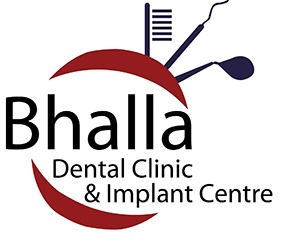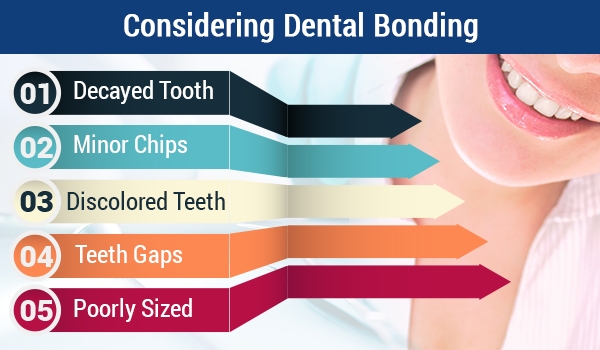Dental bonding is a type of cosmetic dental procedure. In which, the plastic materials called composite resins are used on person’s teeth to enhance aesthetic oral appearance. This substance is applied, shaped and polished according to individual’s own teeth tone and size and adapted to remaining teeth structure. It is mainly maneuvered to cure stained/discolored or chipped teeth improving one’s smile.
When should I consider dental bonding?
Dental bonding needs to consider one’s right candidacy at first.
If you are with the following dental issues, you owe a consultation to your dentist:
- Decayed tooth
- Minor chips, cracks on teeth
- Discolored/ugly teeth
- Teeth gaps (spaces between teeth)
- Poorly sized and shaped teeth (shorter in line with other teeth structure)
- Receding gums (enhancing teeth structure to prevent loss to teeth root)
It fixes above oral issues and greatly beautifies facial look!
How is dental bonding performed?
The dental bonding is a special preparation that usually does not require the patient to undergo anesthesia. Fillings for tooth decays or sort of repairing may need it. To create the materials that can match one’s teeth color and tone very closely is the first step.
Next is a bonding process in which, the teeth surfaces are roughened to ensure material’s nice attachment to them. The resins that are specially prepared matching one’s teeth are then applied and shaped as planned. This material will now need to be hardened using special light or laser. Following is a final trimming, polishing and shaping until it looks quite adapting to the remaining structure of teeth.
Dental bonding usually takes from half an hour to an hour to complete.
What are the benefits of dental bonding?
The advantages of dental bonding are tremendous. As compared to other cosmetic dental surgeries, it is less expensive. Bonding will probably not require lab work to be created. They are made easily in offices except there are more teeth involved needing bonding.
Being most advantageous, it mainly does not require much of enamel scratching unlike some procedures like dental veneers or crowns.
Although the dental bonding treatment has some limitations like not too long durability or more vulnerability to cracks and breaks, many people choose it depending on their timely requirements and results. For minor cosmetic requirements, it’s a perfect oral solution.
Is dental bonding long-lasting?
Usually up to 4 years to 10 years span. At the same time, how you care for it will also decide its healthy life. Oral hygiene, prevention from harmful habits/materials is advised. In future, it can also be replaced or repaired with additional touches.
What is post-op care for dental bonding?
Not much, typically! Better oral hygiene, dental care with appropriate teeth brushing and flossing can preserve it well. Regular followup to your dentist for teeth cleaning is a preventive step for any discrepancy.
As we know it’s susceptible to cracks easily, avoid some habits like chewing hard foodstuffs or materials that can cause damage to bonding. If you notice something unusual with it, see your doctor immediately to have it corrected before further worsening.
How much dental bonding cost?
Not much costly against cosmetic dental treatments alike! As demography will vary, the costing will also. One can compare the prices of dental bonding city to city and country to country. Dental tourism is a face that is, at present, in high demand for its lower prices and quality treatments accessible worldwide!





